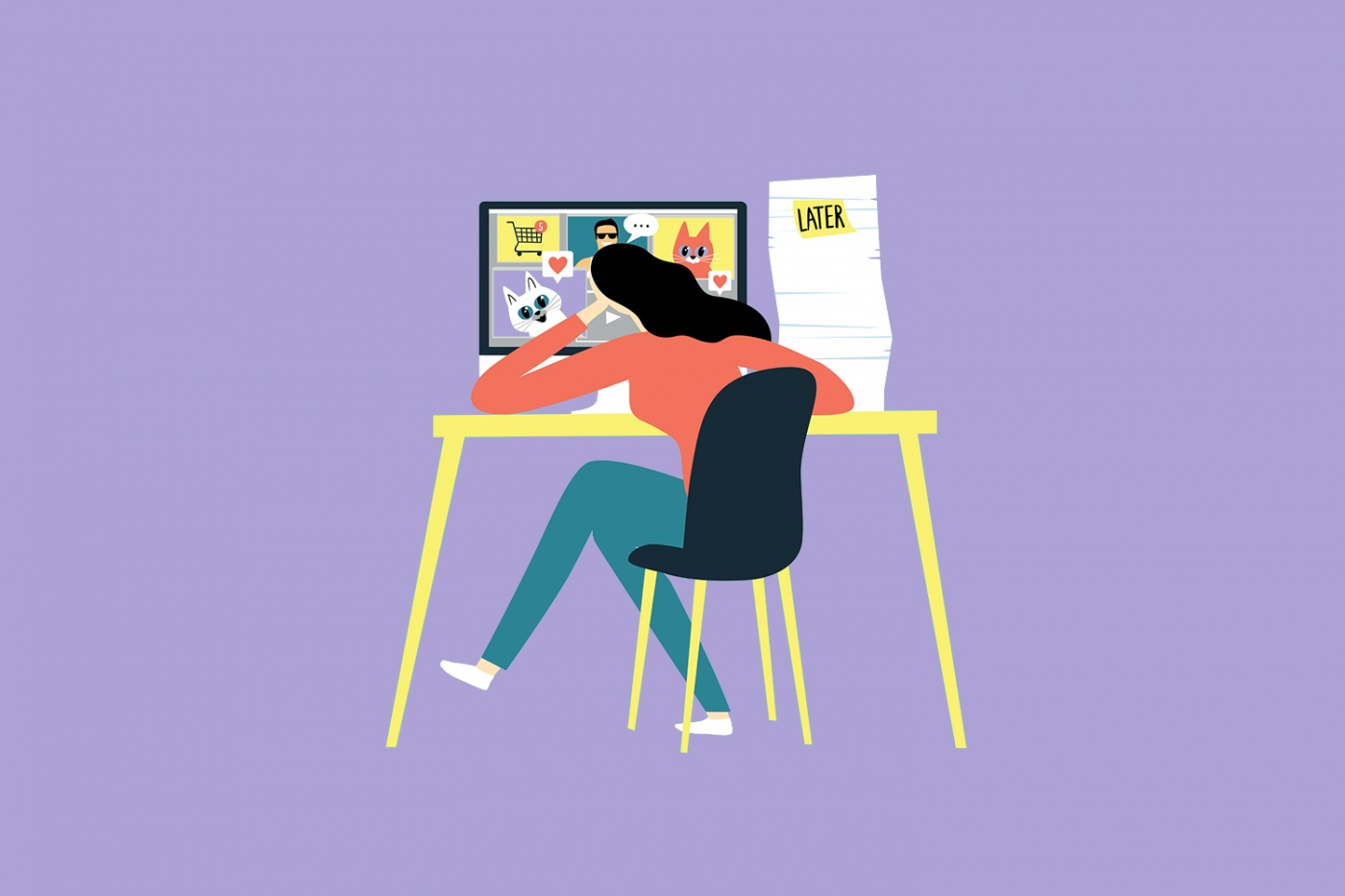Can Procrastination Actually Make You More Productive?
Procrastination seems to have a bad reputation for turning valuable hours into wasted time. Instead of working on that proposal, we’re binge-watching the final season of Game of Thrones. The procrastination demon holds our looming deadlines captive, and the ransom is a mid-day snack, a scroll through social media, a power nap, a trilogy of feature-length movies, a deep dive into the history of Triassic tetrapods, and a series of trips to the toilet. But what if I told you there’s nothing wrong with procrastination?
It’s not about whether you procrastinate, but how you procrastinate that makes a difference. If you think about it, it’s really just a fancy word for taking a break. We feel guilty about doing it because it seems like a big waste of time and it feels hard to control. You can’t help but to procrastinate. You’re basically being mind-controlled. However, when we take deliberate steps to procrastinate, we have power over our actions. Forget about resisting the urge to put off your work. Lean into it and make it purposeful and free of negative emotions such as shame that can further debilitate us in regaining our focus to accomplish real work.
It’s all about reframing the idea of procrastination. Embrace the fact that it is an absolutely normal—not a bad habit, but a normal practice. Allow yourself to fully enjoy the process of engaging in mundane activities, in place of proper work. Besides, our brains are not wired to concentrate on a single thing for long stretches of time. Doing so will result in a gradual descent in quality of the endeavour, much like how the longer we stay awake at night, the slower our engines run. Getting rest, in the form of procrastination, allows us to recharge our minds and re-enter our tasks with renewed vigour. For creatives, it can even offer fresh inspiration.
Although, to prevent yourself from getting lost in the rabbit hole, it is vital to set boundaries and temporal limitations. Perhaps an hour of dilly-dallying for three hours of work. If the urge to procrastinate comes at irregular spurts, give in to those small moments, but be sure to bring yourself back to the task at hand right after attending to a distraction. Ultimately, if you’re mindful of what you do while procrastinating, you would still be spending your time productively. Catching up on some reading, for instance, is a good way to kill time, knowing you’re keeping yourself erudite. You could also be brushing up on valuable, albeit seemingly ancillary skills, such as a new language or musical instrument.
Even taking a stroll outdoors is productive and beneficial—healthy body, healthy mind. Certain video games can sharpen your strategic acumen, while enhancing cognitive and critical reasoning skills. Here’s another example. Say you’re a musician and you have to write a song by the end of the day. Rather than brainstorm for lyrics, you start noodling on your guitar. Some may see that as a waste of time, but this act of casual improvisation could lead to inspiration and speed up the songwriting process.
What doesn’t help are mindless, aimless activities. You may think a leisurely walk around the block is mindless, but it gives you the opportunity to reflect (and perhaps brainstorm) in solitude and peace. An activity only becomes mindless when you’re not fully present in the moment. Watching cat videos on Facebook may offer a few healthy chuckles, but if you’re simply scrolling through your newsfeed like a disengaged zombie, you’re as good as staring at a wall with your eyes glazed over. You’re not quite getting the rest you need, nor the fun of consuming frivolous content.
If you’re really looking to crank up the productivity, use the time you procrastinate to accomplish other tasks on your to-do list. This is what John Perry, the author of The Art of Procrastination: A Guide to Effective Dawdling, Lollygagging and Postponing, calls “structured procrastination”. Have you ever had to juggle two projects at a time? You’ve made a plan to tackle the first project at the crack of dawn, and leave the second till the afternoon. Yet, for whatever reason, you find yourself gravitating towards the second project when you’re supposed to be focused on the first. The beauty of procrastination is that you can bounce between multiple projects whenever you want. And mind you, this isn’t multi-tasking. Your brain isn’t trying to accomplish two different tasks at the same time. It is concentrating on one task at a time, though at short intervals.
The trick, according to Perry, is to have two sets of to-do lists—one for your daily chores and duties that can be as simple as getting out of bed, and one for larger goals that take longer to accomplish. The daily to-do list is easy to tackle and gets you into a momentum for productivity. As for the latter, arrange the items so that the top priority is a task that seems urgent, but isn’t really. When you procrastinate, you’ll thus work on smaller, easier tasks on the same list that are in fact more important than the one at the top. Whether you decide to trick your brain or not, it’s time we redefine the act of procrastination and use it to our advantage.


